Elevated blood pressure, i.e. hypertension, often strikes without a warning, without any symptoms, which is why only half the patients get diagnosed. And because they feel relatively well, they delay getting treatment, or they don’t take their treatment regularly. In the meantime, this disease keeps affecting organs and preparing the grounds for the first cardiovascular event, which may prove to be fatal.
Hypertension – the silent killer
Hypertension is the most common chronic disease in the developed world and the leading cause of premature death globally.
People with hypertension most often exhibit no symptoms, so the disease is often detected at a late stage.
Signs of hypertension include headache, dizziness, fatigue, palpitations, poor sleep, ringing in the ears, nosebleeds and tightness in the chest. Most often, however, people with hypertension show no symptoms, which is why the disease is often detected late. As a result, many newly diagnosed patients already have damage to target organs (blood vessels, heart, brain, kidneys, eyes). Many patients only start taking their condition seriously when the changes in target organ begin to manifest themselves in a variety of ways. By then, the disease had progressed to a point where complete recovery is no longer possible.
VASCULAR DAMAGE
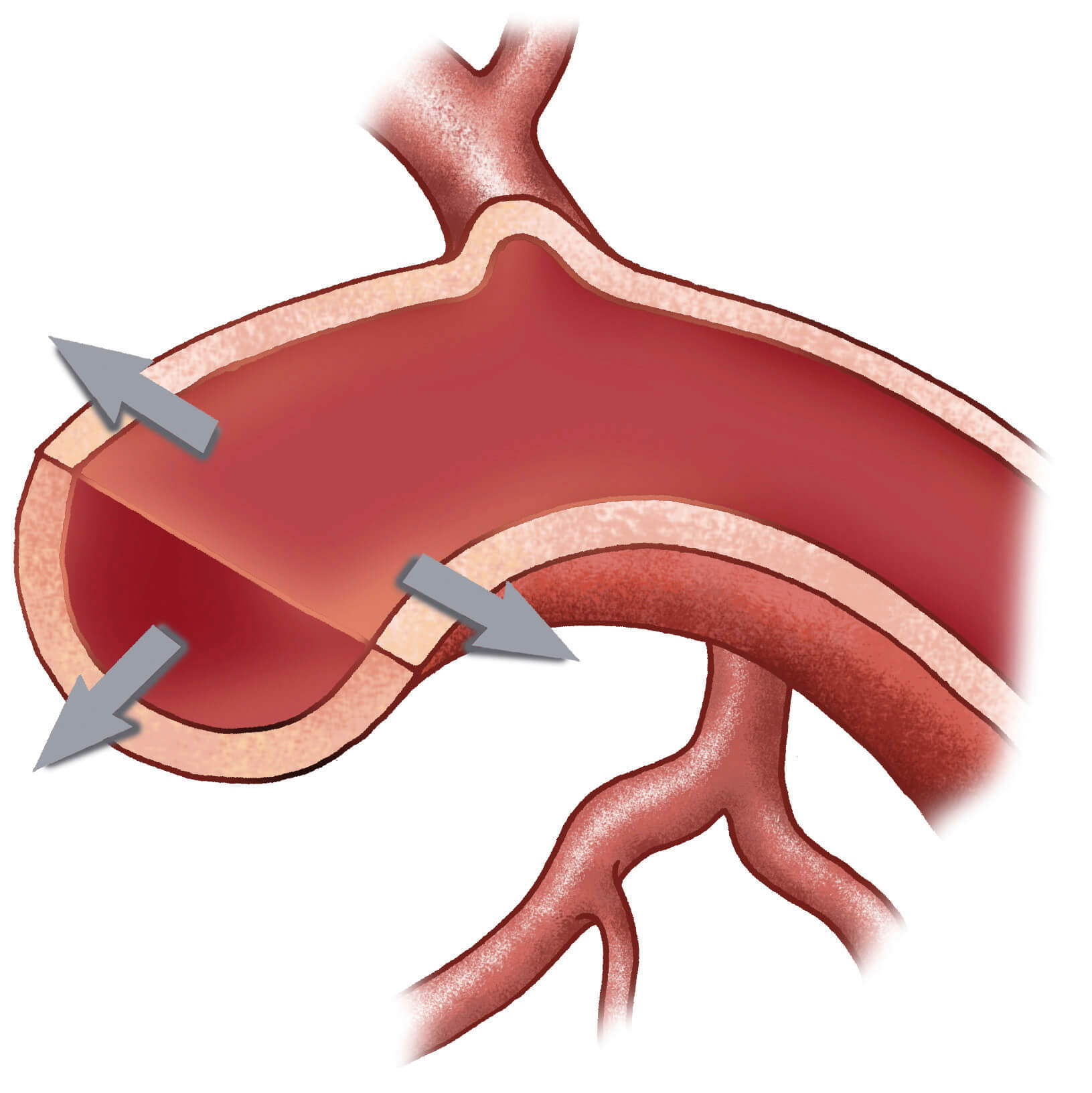
Arteries become stiff and have a narrowed lumen due to constant pressure. As a result, blood supply to all parts of the body is reduced.
BRAIN DAMAGE
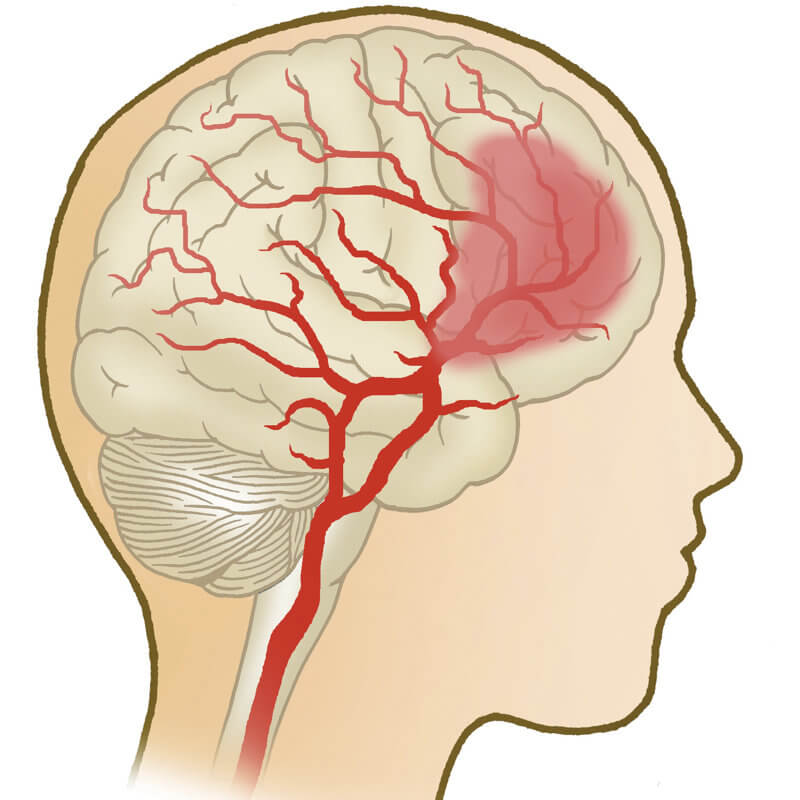
Reduced or even interrupted blood supply to the brain due to blood clots can cause a stroke, which may result in dementia.
EYE DAMAGE
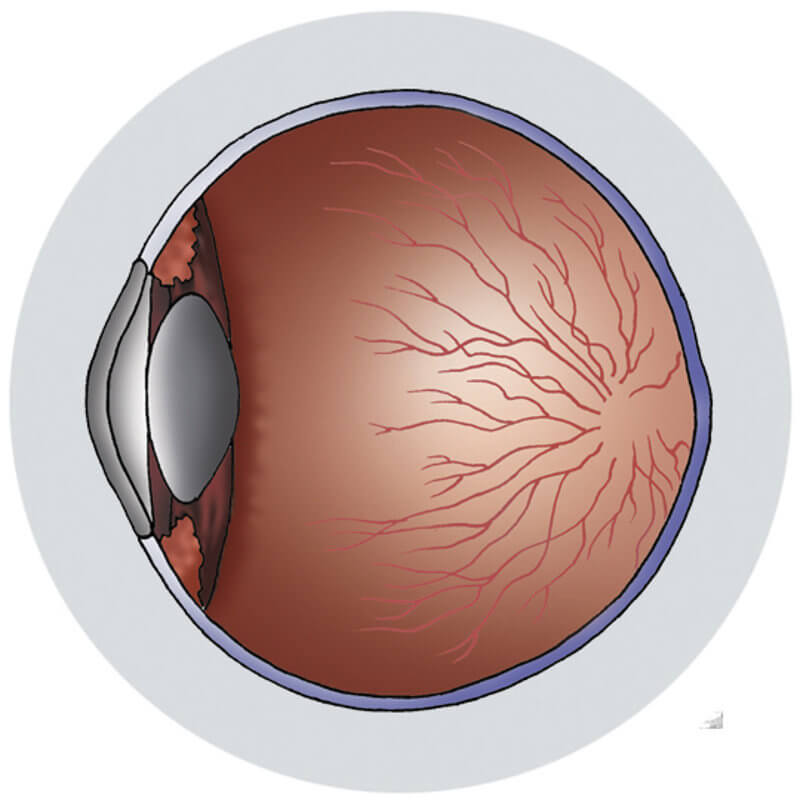
High blood pressure often damages the tiny and delicate blood vessels of the eye. This can cause bleeding in the back of the eye, blurred vision and complete loss of vision.
HEART DAMAGE
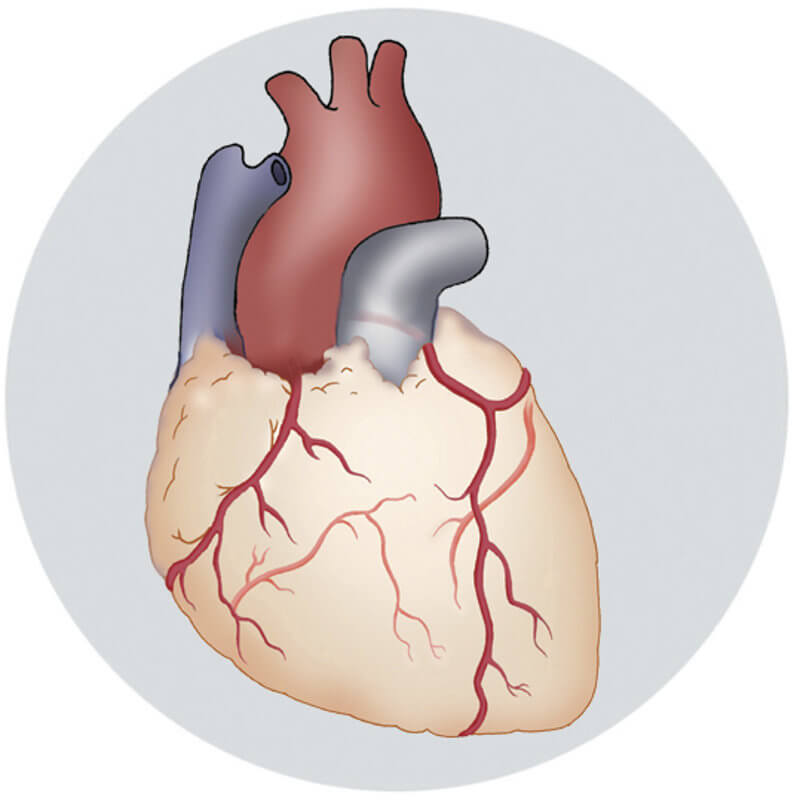
With high blood pressure, the heart muscle has to do considerably more work to keep the blood circulating. It adapts to the increased strain by first increasing its mass and then undergoes changes (e.g. heart failure). At that point, the heart is no longer able to provide the necessary blood flow to the body. If left untreated, the impaired blood supply to the heart muscle (coronary artery disease) can lead to angina or heart attack, among other things.
KIDNEY DAMAGE
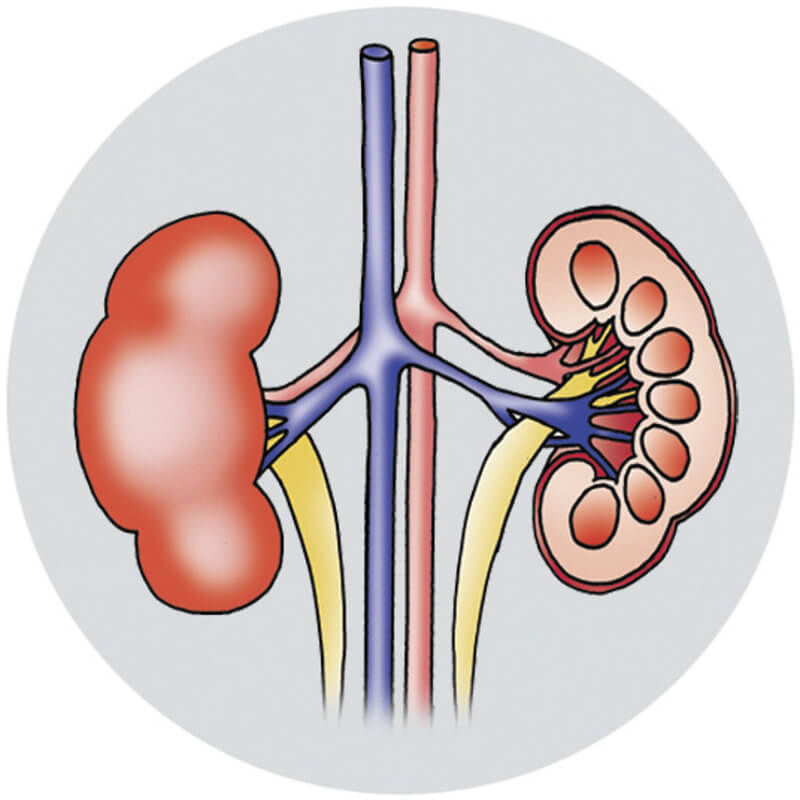
Altered blood vessels cause kidney damage, which reduces how much waste substances get removed from the blood. The retention of waste and dangerous substances in the body may require dialysis or a kidney transplant.
To prevent damage to target organs (blood vessels, heart, brain, kidneys, eyes) caused by hypertension, it is crucial to detect the disease as early as possible and not delay treatment.
Act when there is still time!
Patients with target organ damage can be helped by slowing down the rate of progression of the damage in order to prevent more serious complications. It is therefore important to strive to prevent irreversible changes from occurring. The key is to detect hypertension as early as possible and not delay treatment.
Regular blood pressure measurements and informing your doctor when your blood pressure increases are essential in detecting hypertension. If a doctor prescribes treatment to you, it is your responsibility to follow his or her instructions, even though you may feel completely healthy. Regular and effective treatment can prevent cardiovascular events and thus prolong life.
Regular and effective treatment can prevent cardiovascular events and thus prolong people’s lives.
Reference
- Ezdravje: Naj krvni tlak ne nadzoruje našega življenja [internet]. [cited 2021 Jun 28]. Available from: https://www.ezdravje.com/news/srce-in-zilje/naj-krvni-tlak-ne-nadzoruje-nasega-zivljenja/4788/
- Erdine S. How well is hypertension controlled in Europe. ESH Scientific Newsletter 2007; 8: 3.
- Prakash D. Target organ damage in newly detected hypertensive patients. J Family Med Prim Care 2019; 8(6): 2042-2046.
- Brunc M, Iztok G. 8. posvet o kronični bolezni srca z mednarodno udeležbo [internet]. Novo mesto: Društvo za izobraževanje in raziskovanje v tujini; 2013 [cited 2021 Jun 28]. Available from: http://www.boleznisrca.com/media/simpozij_arhiv/Zbornik_2013.pdf
- Mills KT, Stefanescu A, He J. The global epidemiology of hypertension. Nat Rev Nephrol 2020; 16, 223–237.
- Za kaj ti bije srce: Simptomi visokega krvnega tlaka [internet]. [cited 2021 Jun 28]. Available from: https://zakajtibijesrce.si/high_pressure/high-third-post/
- Williams B, Mancia G, Spiering W et al. 2018 ESC/ESH Guidelines for the management of arterial hypertension. European Eur Heart J 2018; 39(33): 3021–3104.
- FSH: Hypertension: the silent killer [internet]. Chicago: First stop health; 2012 [cited 2021 Jun 28]. Available from: https://www.fshealth.com/blog/hypertension-silent-killer
- Vita: Povišan krvni talk in okvare srčno-žilnega sistema [internet]. [cited 2021 Jun 28]. Available from: https://www.revija-vita.com/vita/39/Povi%C5%A1an_krvni_tlak_in_okvare_sr%C4%8Dno-%C5%BEilnega_sistema
- Mayo Clinic: High blood pressure dangers: Hypertension’s effects on your body [internet]. Mayo Foundation for Medical Education and Research; 2019 [cited 2021 Jun 28]. Available from: https://www.mayoclinic.org/diseases-conditions/high-blood-pressure/in-depth/high-blood-pressure/art-20045868
- EZdravje: Depresija in koronarna bolezen [internet]. [cited 2021 Jun 28]. Available from: https://www.ezdravje.com/dusevno-zdravje/depresija/depresija-in-koronarna-bolezen/?s=2
